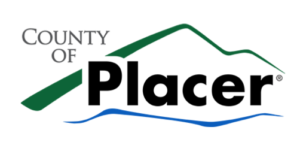 The Placer County Board of Supervisors on Tuesday adopted the first-of-its-kind Placer County Conservation Program, which permanently conserves significant open space and agricultural land in western Placer County and streamlines project permitting.
The Placer County Board of Supervisors on Tuesday adopted the first-of-its-kind Placer County Conservation Program, which permanently conserves significant open space and agricultural land in western Placer County and streamlines project permitting.
The PCCP covers more than 260,000 acres of western Placer County and Lincoln. Within the plan area, roughly 47,000 acres would become part of an interconnected reserve system to more effectively protect fish and wildlife species and their habitat.
The PCCP would be among the first habitat conservation plans in the country to integrate endangered-species and aquatic-resource permitting and conservation into one locally managed and streamlined process.
“The PCCP is a wonderful example of the county working with environmental groups, business leaders, developers, farmers and other stakeholders to reach a common goal,” said District 2 Supervisor Robert Weygandt. “This achievement has potential to serve as a model for other counties across the country – protecting species and their habitats while streamlining permitting processes.”
Subsequent adoption hearings are planned to be held by the Lincoln City Council, Placer County Water Agency Board of Directors and South Placer Regional Transportation Authority Board of Directors as additional PCCP plan partners.
Under the federal Endangered Species Act and California Natural Community Conservation Planning Act, PCCP plan partners will be able to extend state and federal permit coverage to proposed public infrastructure and private development projects.
Under the related Aquatic Resources Program, the U.S. Army Corps of Engineers and Regional Water Quality Control Board would implement an abbreviated programmatic permitting process for certain qualifying projects under Sections 401/404 of the federal Clean Water Act.
“The PCCP is key to balancing future growth and conservation in western Placer County,” said District 4 Supervisor Kirk Uhler. “This program would coordinate and streamline the permitting process by enabling local entities rather than federal and state agencies to extend permit coverage to projects, which is one of its key benefits.”
Property owners and project sponsors required to mitigate species and habitat impacts under the PCCP would either dedicate land to the reserve system or pay fees to support free-market easement or property acquisitions. The PCCP would be managed by a joint powers authority including Placer County and Lincoln that would hold title to conservation easements or fee title to preserved lands. The JPA would also oversee cooperative agreements with other entities that would own or manage preserves or conservation easements as part of the PCCP reserve system.





